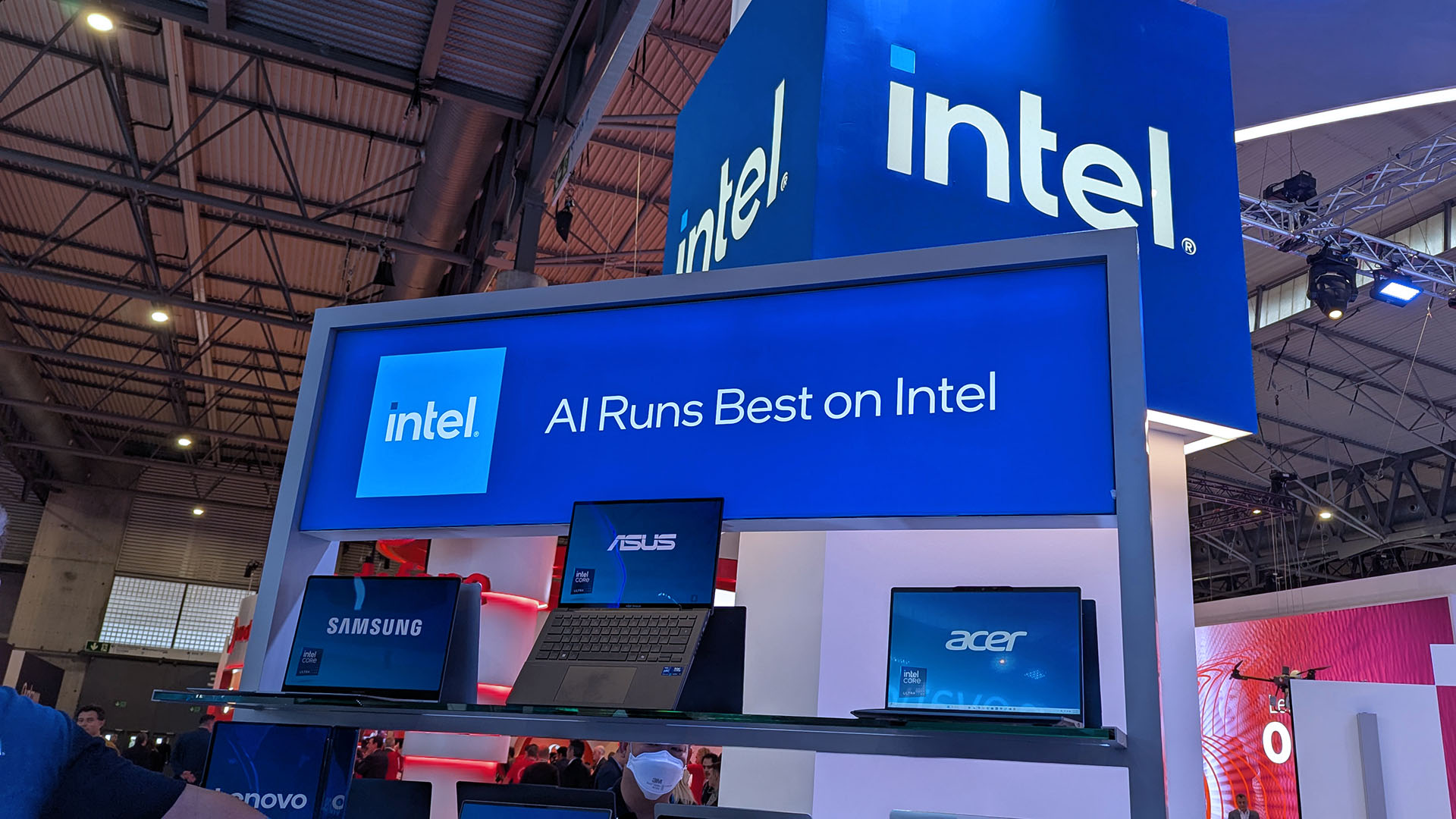Microsoft says AI agents will make every employee an "agent boss" — after Bill Gates claimed AI will replace humans in most jobs
Microsoft's Work Trend Index report claims 83% of industry leaders want AI to help employees handle complex tasks.
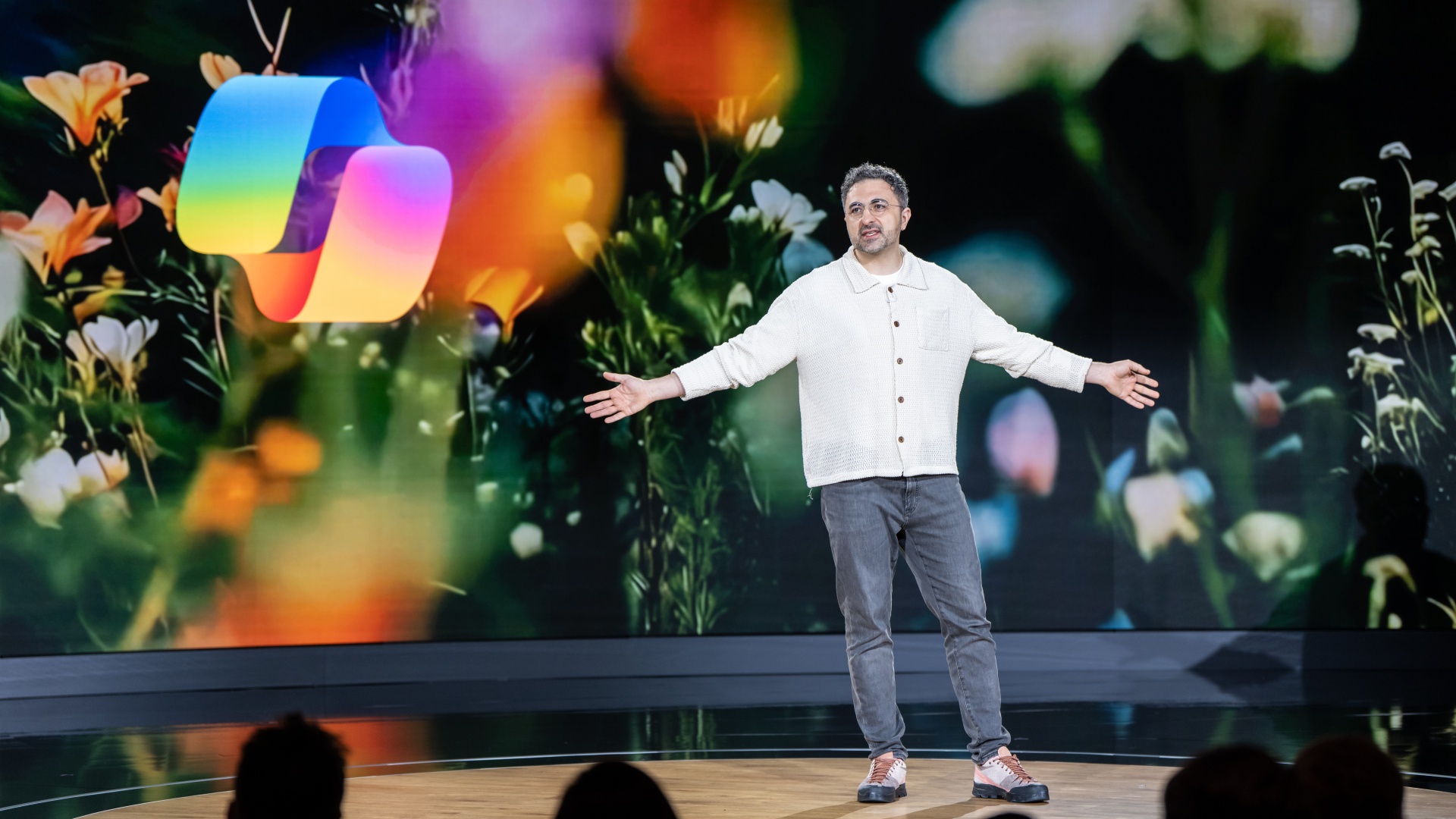
Disclaimer
Microsoft's annual Work Trend Index report is based on information gathered from ~31,000 people across the world in 31 different countries. It analyzes labor and hiring trends from LinkedIn and Microsoft 365 productivity patterns. Unlike previous reports, the company also interviewed AI startups, economists, and academics to establish a firm grasp on how AI is reshaping the future of work.
Microsoft just unveiled its annual Work Trend Index report, and as expected, it is centered on the impact of generative AI on work. The report details that we're on the verge of a new reality where AI can not only reason but also resolve problems at the workplace in remarkable ways.
Microsoft admits that, like the industrial revolution or the Internet era, it might be decades before artificial intelligence completely transforms and revolutionizes work.
However, over 82% of industry leaders who took part in the survey indicated AI is already revolutionizing work, prompting them to re-strategize their operations with the emergence of the "Frontier Firm."
It's a new kind of organization comprising intelligence on-tap and human-agent teams, which creates a new role for professionals and makes them "agent bosses."
AI will undoubtedly reshape how we view and approach work, but the report claims "human ambition, creativity, and ingenuity will continue to create new economic value and opportunity."
Gen AI is closing the productivity gap at work
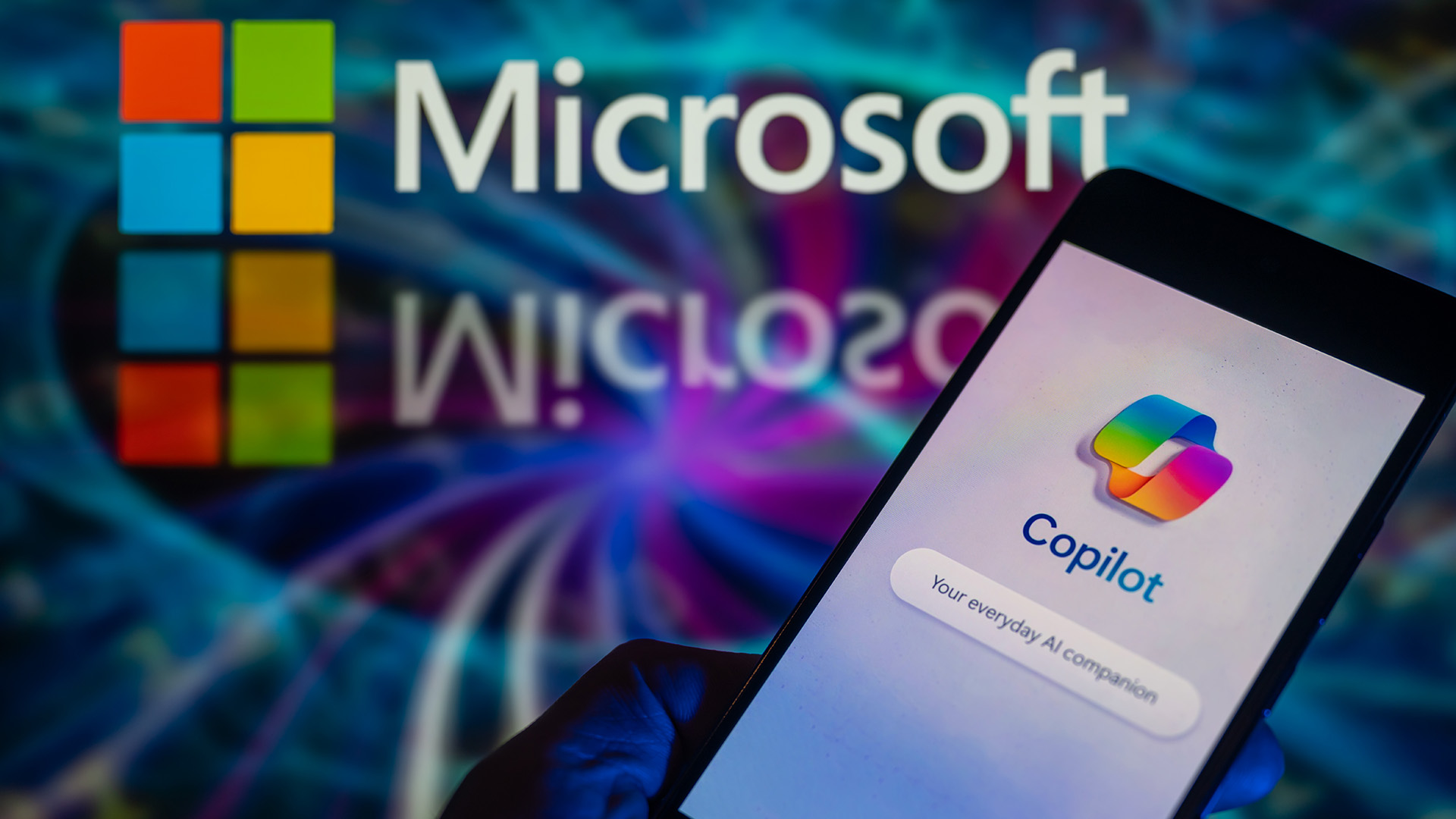
With the emergence of generative AI, the report indicates that intelligence is no longer limited to headcount or expertise, unlocking a new world where you could essentially "buy" intelligence.
Microsoft's Work Trend Index report claims that readily available intelligence via AI will help bridge the gap between business demands and human capacity.
Get the Windows Central Newsletter
All the latest news, reviews, and guides for Windows and Xbox diehards.
Still, productivity remains a major pressure point for most companies, with 53% of the executive leaders who took part in the survey claiming that it must increase, while 80% of the global workforce say they don't have adequate time or energy to do their work.
"On average, employees are interrupted by a meeting, email, or ping every 2 minutes," Microsoft added.
As such, the report suggests that approximately 82% of leaders will leverage AI and digital labor to close the gap highlighted above within the next 12 to 18 months.
While the common consensus among is that AI is stealing jobs from professionals, LinkedIn data reveals that top AI labs are hiring at 2x the rate of "big tech." Perhaps more interestingly, the report claims that new talent joining these AI firms is, in fact, from those big tech companies.
However, a recent report revealed that Google uses aggressive noncompete clauses and year-long PTO to keep DeepMind's AI staff from defecting to rival firms.
AI agents are rapidly gaining broad adoption
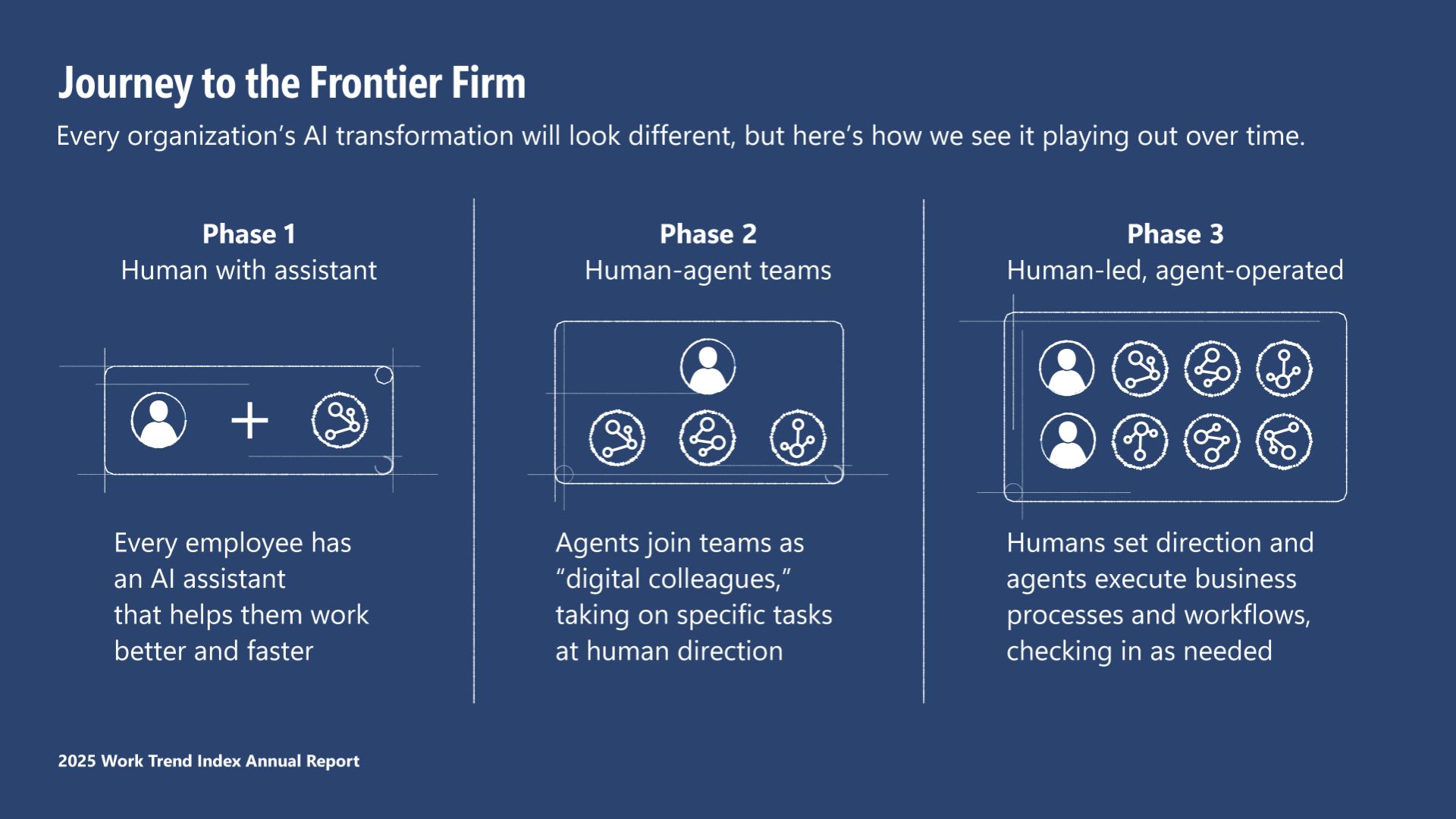
Over the past few years, more companies have hopped onto the AI bandwagon, integrating the technology into their workflows. Recently, AI agents have seemingly joined the fold, "drawing on the right mix of humans and agents to get the job done."
46% of the leaders who took part in the survey indicated that they are already using AI agents to fully automate workstreams and business processes. Per this new Work Trend Report, customer service, marketing, and product development have the highest propensity to be fully augmented using AI.
Organizations will need to consider if there are times when human and digital labor outperform AI alone, when customers prefer a human touch, or when society expects people to be responsible for the consequences—like a high-stakes product or finance decision.
Microsoft
Interestingly, the report suggests that it's still important to maintain a healthy human-to-AI-agent ratio at work, presumably based on the roles and tasks assigned to AI agents and the number of humans required to guide them through the processes.
Making every employee an AI agent "boss"
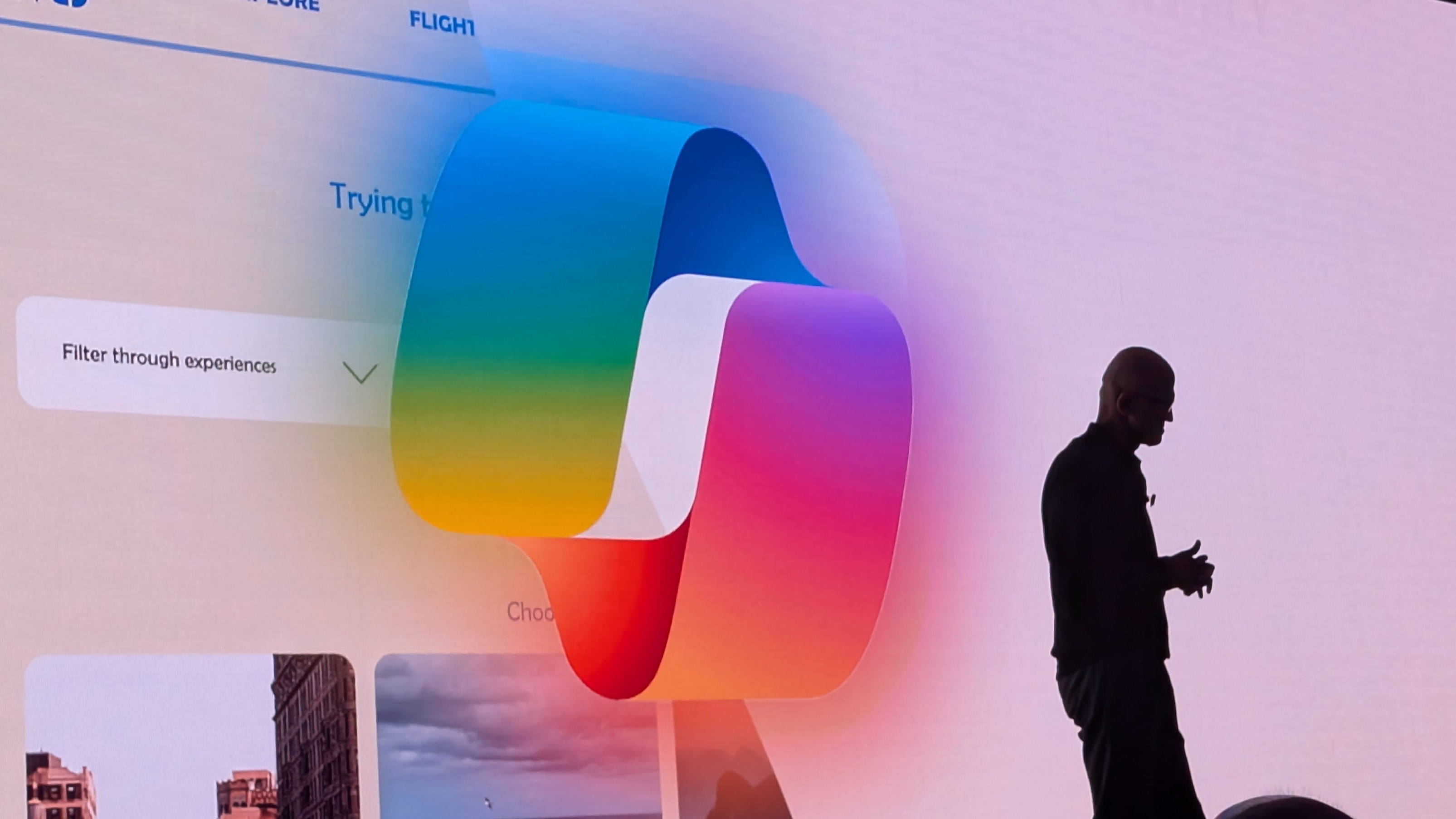
The report goes on to describe the importance of company executives finding the perfect blend between humans and agents at the workplace. As AI agents infiltrate workspaces, it suggests there will be an emergence of "agent bosses."
According to Microsoft, an agent boss is "someone who builds, delegates to, and manages agents to amplify their impact and take control of their career in the age of AI."
"From the boardroom to the frontline, every worker will need to think like the CEO of an agent-powered startup," the company indicated. "In fact, leaders expect their teams will be training (41%) and managing (36%) agents within five years."
Last year's report placed employees at the forefront in adopting AI across their workflows, prompting "a 142x increase in LinkedIn members adding AI skills like Copilot and ChatGPT to their profiles."
However, Microsoft's latest report shines a different light, placing employers and leaders on par with the rapid advances in AI.
"Leaders outpace employees on every measure: 67% are familiar with agents (vs. 40% of employees), and 79% believe AI will accelerate their careers (vs. 67%). But this shift won’t stop at the top. As agents become embedded into daily work, roles across every level and function will evolve—along with the broader workforce."
Still, the AI era is often creating job security concerns. According to the report, 33% of the leaders are seriously considering reducing the workforce and headcount at their organizations.
As you may know, tech execs, including Microsoft co-founder Bill Gates, claim AI will replace humans for "most things". Even Salesforce CEO Marc Benioff says the company is seriously debating hiring software engineers in 2025.
83% of leaders say AI will provide employees with the opportunity to handle complex tasks, while 78% want to recruit for new AI roles. To that end, it's evident that AI reshaping organizations is changing how we view work on a global scale. It'll be interesting to see any further impact on job security and general productivity.

Kevin Okemwa is a seasoned tech journalist based in Nairobi, Kenya with lots of experience covering the latest trends and developments in the industry at Windows Central. With a passion for innovation and a keen eye for detail, he has written for leading publications such as OnMSFT, MakeUseOf, and Windows Report, providing insightful analysis and breaking news on everything revolving around the Microsoft ecosystem. While AFK and not busy following the ever-emerging trends in tech, you can find him exploring the world or listening to music.
You must confirm your public display name before commenting
Please logout and then login again, you will then be prompted to enter your display name.
